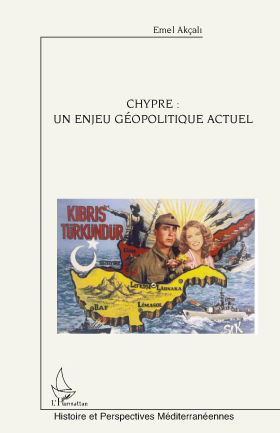Introducing Emel Akçali
 Emel Akçali (1977) holds the Turkish and Cypriot nationality. She graduated in International Relations at both the American University (Paris, BA) and at the Université de Galatasaray (Istanbul, MA).
Emel Akçali (1977) holds the Turkish and Cypriot nationality. She graduated in International Relations at both the American University (Paris, BA) and at the Université de Galatasaray (Istanbul, MA).
Dr Akçali obtained her PhD in Political Geography at the Geography Institute of Paris IV-Sorbonne.
Her current position is Visiting Lecturer and Honorary Research Fellow at the Political Science and International Studies Department of University of Birmingham.
This interview with dr Emel Akçali focuses on the role of globalisation, world systems theory, mental maps and other concepts in analysing ethnic-territorial conflicts.
A related interview with her is Emel Akçali – Cyprus’ geopolitical realities, representations and aspirations.
Interview
How would you define “Globalisation”? Has it changed the nature of ethno-territorial conflicts?
I define globalisation as the new hegemony of the transnational capital. This hegemony has not changed the nature of ethno-territorial conflicts in the sense that such conflicts are still based on ethnic and territorial claims. However, it has modified both their conduct and resolution efforts.
Globalisation has created conditions in which both territorial states and ethno-territorial entities must manoeuvre within a global context. This certainly enables ethno-territorial discourses to become internationalised more effectively and escape the nation-state’s hegemony. Globalisation has also created unambiguous conditions in which military superiority does not anymore guarantee political legitimacy, but participation to the ‘globalised world’ can. Therefore, actors involved in any ethno-territorial conflict today, as first, secondary or third parties are well aware of these conditions and take their actions accordingly.
What does the “World-System Theory” claim? How does it help in analysing ethno-territorial conflicts?
The way that I use the world systems approach in analysing ethno-territorial conflicts is as such: The global capitalist economy imposes concrete restrictions or dictates prescriptions for the peripheral countries and these conditions lead to identity transformations or sometimes deterritorialisation and sometimes reterritorialisation foreign policy articulations.
Peripheral states and people are more compelled to redefine identities, in order to adapt to the global changes and attract the help of transnational organizations. They can also resist by developing even more rigid identities and consolidating or defending their territorial claims. However, they are usually the vulnerable sides of the world’s system. Core states, instead are more able to maintain their rigid identities and firm geopolitical and foreign policy articulations thanks to their comparative economical and technological advantage.
What are “Mental Maps”? What role can they play in analysing ethno-territorial conflicts?
Mental maps are key tools of Behavioural Geography and reveal how individuals perceive the spatial forms of an area and what kind of internalized representation they have of a particular place. I believe that they bring interesting insights to the analysis of ethno-territorial conflicts as they are important qualitative assessments of two key issues in ethno-territorial studies: individuals’ attitudes towards territoriality and the process of homeland-making in general.
What is “Environmental Peacemaking”? What is its added value in solving territorial conflicts?
 Environmental peacemaking is, in essence, the promotion of environmental protection and sustainable development cooperation between states and political entities in conflict. It has been activated as a novel strategy of solving and transforming border and ethno-territorial conflicts by the international peace organizations. In my work, I suggest that this approach is closely related with the new understandings of borders as social and dynamic constructions which are open to new and multiple meanings and identities through societal changes.
Environmental peacemaking is, in essence, the promotion of environmental protection and sustainable development cooperation between states and political entities in conflict. It has been activated as a novel strategy of solving and transforming border and ethno-territorial conflicts by the international peace organizations. In my work, I suggest that this approach is closely related with the new understandings of borders as social and dynamic constructions which are open to new and multiple meanings and identities through societal changes.
Border and ethno-territorial conflict peacemaking efforts today stress human-needs and world society approach rather than a state-centred framework. This understanding correlates with development and sustainability studies and thus environmental peacemaking which aim to meet human needs while preserving both the physical and cultural environment so that these needs can be met not only in the present, but in the indefinite future and bring peace to nations/ethnic groups/communities in conflict.
How would you define “Eurasianism”? What are its advantages compared to Western geopolitical discourses?
Eurasianism originally emerged as an intellectual movement within the Russian émigré community in the 1920s that was critical of the Western-centric vision of understanding and explaining world history, geography and politics. Since the collapse of the USSR, Eurasianism (or neo-Eurasianism) has re-emerged in Russia itself, where it is embraced broadly and has been used by different political and intellectual actors for different agendas.
Despite its controversy, it has found an echo beyond Russian frontiers, in Tatarstan, Kazakhistan and Turkey as well. The only advantage that it may have is that it can easily be articulated as an alternative globalist discourse and attract all those who are critical of globalisation and who see it mainly as a Western construct.
